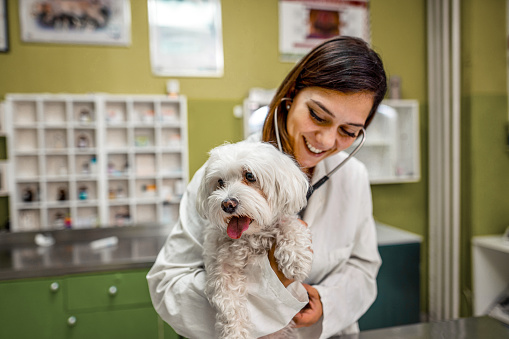How Become The Best Vet?

In the United States, becoming a veterinarian requires passing a certification exam. Students studying at veterinary schools must pass the North American Veterinary Licensing Examination (NAVLE), administered by the International Council for Veterinary Assessment, as well as state exams. There are 32 accredited colleges and universities for veterinary study in the U.S., all of which are members of the American Association of Veterinary Medical Colleges. There are also six departments of veterinary medicine in the U.S.
Veterinary schools offer both basic training in science and clinical procedures. Applicants may choose to pursue a general or specialty training program, although some specialties require additional five years of residency training. Students interested in becoming veterinarians should focus on mathematics and science, preferably taking AP or honors classes in these subjects. Some schools also offer specialized courses to teach students about animal behavior and clinical skills.
Veterinary schools also consider a student's commitment to lifelong learning and critical thinking skills. Applicants who are involved in research projects, for example, demonstrate an interest in pursuing new knowledge and applying it to practice. Advancement of veterinary medical knowledge benefits vast populations of patients. Therefore, applicants with strong research skills may be considered for admissions. Learn how to become a vet assistant here!
After completing veterinary school, an aspiring veterinarian should expect to spend a year working in the field. A bachelor's degree is usually required for veterinary school admission. A bachelor's degree usually takes four years to complete and includes pre-requisite science and math classes. In addition, aspiring veterinarians may also take social studies and humanities classes, which can further help them prepare for veterinary school. Know how to become a vet assistant today!
The path to becoming a veterinarian is a challenging and rewarding one. A veterinarian has a vital role in society, providing welfare for animals in need. Getting a degree in veterinary medicine will require hard work and patience. If you're passionate about helping other life forms, becoming a vet could be the perfect career for you.
In addition to preparing for the entrance exam, veterinary school applicants need to take several prerequisite courses and pass the GRE. It's important to give yourself plenty of time to study and pass the entrance exam. Additionally, they will have to submit letters of recommendation from veterinarians and professors. Having these letters of recommendation from those who know you outside of class can help you stand out.
Once you have decided to become a veterinarian, the next step is to find a job. Most new graduates are working in private practices, with 4% in government jobs. A few are in residency or an internship. The average salary for a new graduate in 2019 is $70,045, which is $4,062 more than the average for the same position in 2018. If you have a strong love for animals, make sure you make room for them in your life.
A veterinary degree takes four years to complete. In the first three years of veterinary school, students study the theoretical aspects of medicine. Then, during the clinical rotations, they apply what they have learned in real-life situations. After completing the program, graduates earn a national and state license, and are then eligible to practice medicine. Check out this website at https://www.britannica.com/summary/veterinary-medicine for more info about vets.
